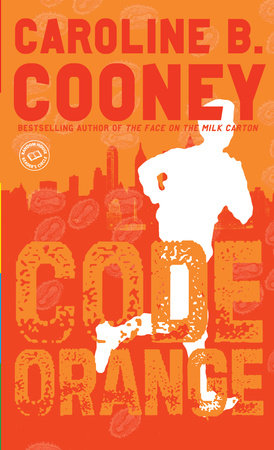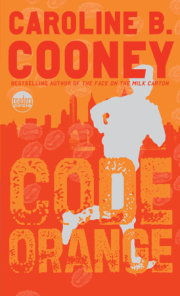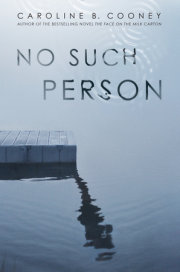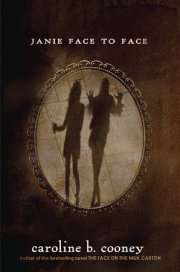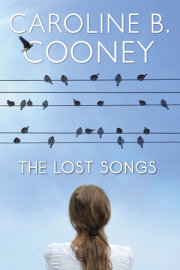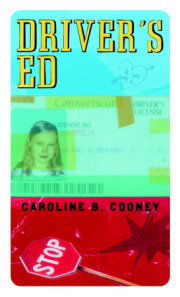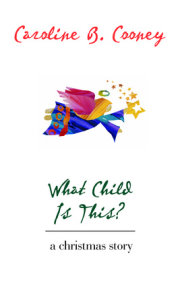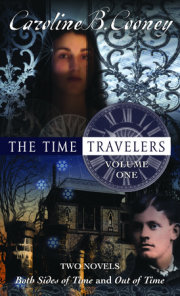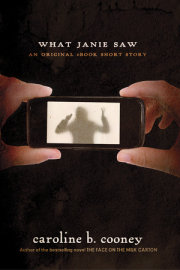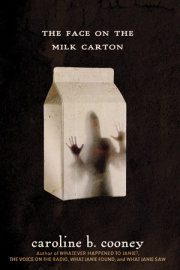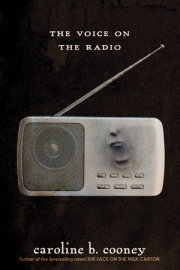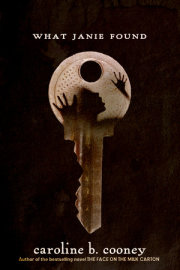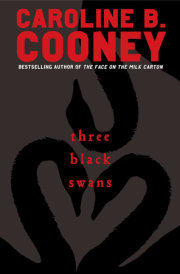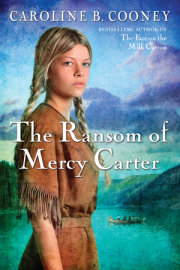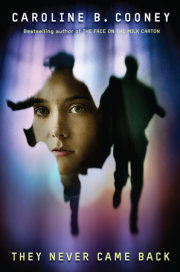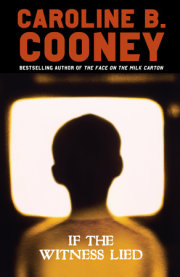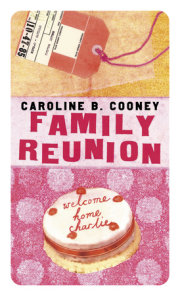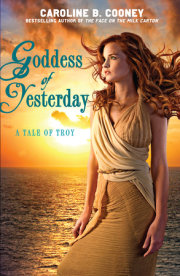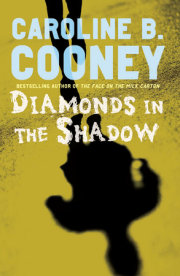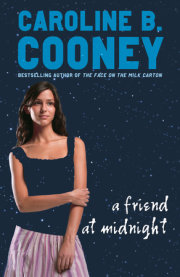Chapter OneOn Friday, Mr. Lynch walked around the classroom making sure everybody had written down the due date in their assignment books. Luckily, he started at the far side, giving Mitty Blake time to whisper to his best friend, "Due date for what?""Notes for the term paper," whispered Derek. "The one you've been working on for four weeks?"Mitty hadn't even chosen a topic yet.But Mr. Lynch had been teaching for years. He had encountered many Mittys. So although the paper itself didn't have to be turned in until February 18, on this coming Monday, February 2, each student in advanced biology had to submit an outline, ten pages of notes and a bibliography including four physical books."Books?" said Mitty, stunned. He was sure this had not been mentioned before. "Mr. Lynch, nobody uses books anymore. They're useless, especially in science. Facts change too fast.""Books," repeated Mr. Lynch. "This is to prevent you people from doing a hundred percent of your research online."Mitty had done zero percent anywhere, but he had certainly planned--insofar as Mitty had plans, which he didn't--to do his research online. So he said, "Mr. Lynch, an actual book is out of date before it gets printed. Anyway, a good scientist does laboratory research.""We did laboratory research last fall, Mitty," said Mr. Lynch. "I don't recall that you threw yourself into your project. I recall that you received a passing grade only through the efforts of the rest of your team. A scientist, Mitty, has to be able to dig through the published research of others. A scientist has to grasp the background and history of things. That means books."Mitty was willing to grasp the background and history of rock music. On a slow day, he could listen to Nirvana or Pearl Jam. But the background and history of disease?Because that was the depressing topic of this assignment: infectious disease."Each of you," Mr. Lynch had said, so many weeks ago that Mitty could barely remember it, "will choose an infectious disease of plants, animals or humans. You will study the disease in history and its ancient treatments or lack of them. If the disease has a specific history for us here in New York City--for example, during the yellow fever epidemics of the 1700s, people sometimes died at the rate of three hundred per city block per day--you will cover that. Other sections of your paper: description and course of the disease, current treatments and ongoing research. Finally, if your disease has an application in bioterrorism, you will cover that also."Even Mitty had awakened briefly to the exciting possibility of bioterrorism.Derek of course had wanted to be an exception to the rules. "Can we research bioterrorism only? I want to do anthrax but specifically Ottilie Lundgren, the ninety-four-year-old woman who died of anthrax in 2001 when she opened her mail. She's FBI case number 184. It's impossible for me to use books. No book has been written about her yet. All my research has to be online." Derek warmed to a favorite topic. "I can solve her mystery. I believe everything is online now, every clue I need, and I can nail her murderer.""I would be proud of you," Mr. Lynch had said, without sarcasm, "and you may focus on Ottilie Lundgren, but all that will do is make your paper longer. You still have to include everything I described and you still must have four books. Remember, class, that I too know how to use Amazon.com. I too can pull up a title that looks useful and stick it in a bibliography without actually reading the book. I too can open up the free first chapter and find something to put in my notes. I will know if you actually read a book or if you are cheating."Mr. Lynch was one of the few teachers who admitted that even here at St. Raphael's, a Manhattan prep school for the rich and/or brilliant (Mitty fell into the first category), there was such a thing as cheating. Other teachers skirted this possibility as if it were anthrax-laced mail.Right away, rare cool African diseases like Ebola and Lassa fever had been chosen by eager students. Two other kids also wanted anthrax but promised not to invade Derek's territory by mentioning Ottilie Lundgren. As the days went by, people began discussing their topics with excitement, as if they were genuinely interested. One girl had been allowed to choose Immunization: does it or does it not cause autism? Mitty would get autism just thinking about that. Another girl really did pick a plant disease and was deep into corn blight. Olivia, whom Mitty adored, had chosen typhoid fever and was already so advanced in her research that she was using the library of Columbia University's medical school, because every other library in New York City was too limited. Mitty hadn't been inside any library in the city of New York.As soon as Mr. Lynch finished ranting, Mitty slumped down in his seat. He had perfected the technique of listening to music on his iPod while a teacher talked. It was easy if he wore long sleeves. He kept the iPod in its armband and ran the cord down his arm and into his hand. Cupping the earpiece in his palm, he would rest his head on the same hand and listen to his music. His eyes stayed fixed on his teachers, who tended to be fond of him because he seemed so interested.Mitty's main interest was music. His life plan was to become a rock concert reviewer, the world's best job, and to prepare for this career, he had to buy, listen to and memorize everything out there. He really didn't have time for term papers. He certainly didn't have time for books.Mr. Lynch extended his hand for Mitty's assignment calendar.Every fall, St. Raphael's handed these out.
Copyright © 2005 by Caroline B. Cooney. All rights reserved. No part of this excerpt may be reproduced or reprinted without permission in writing from the publisher.

